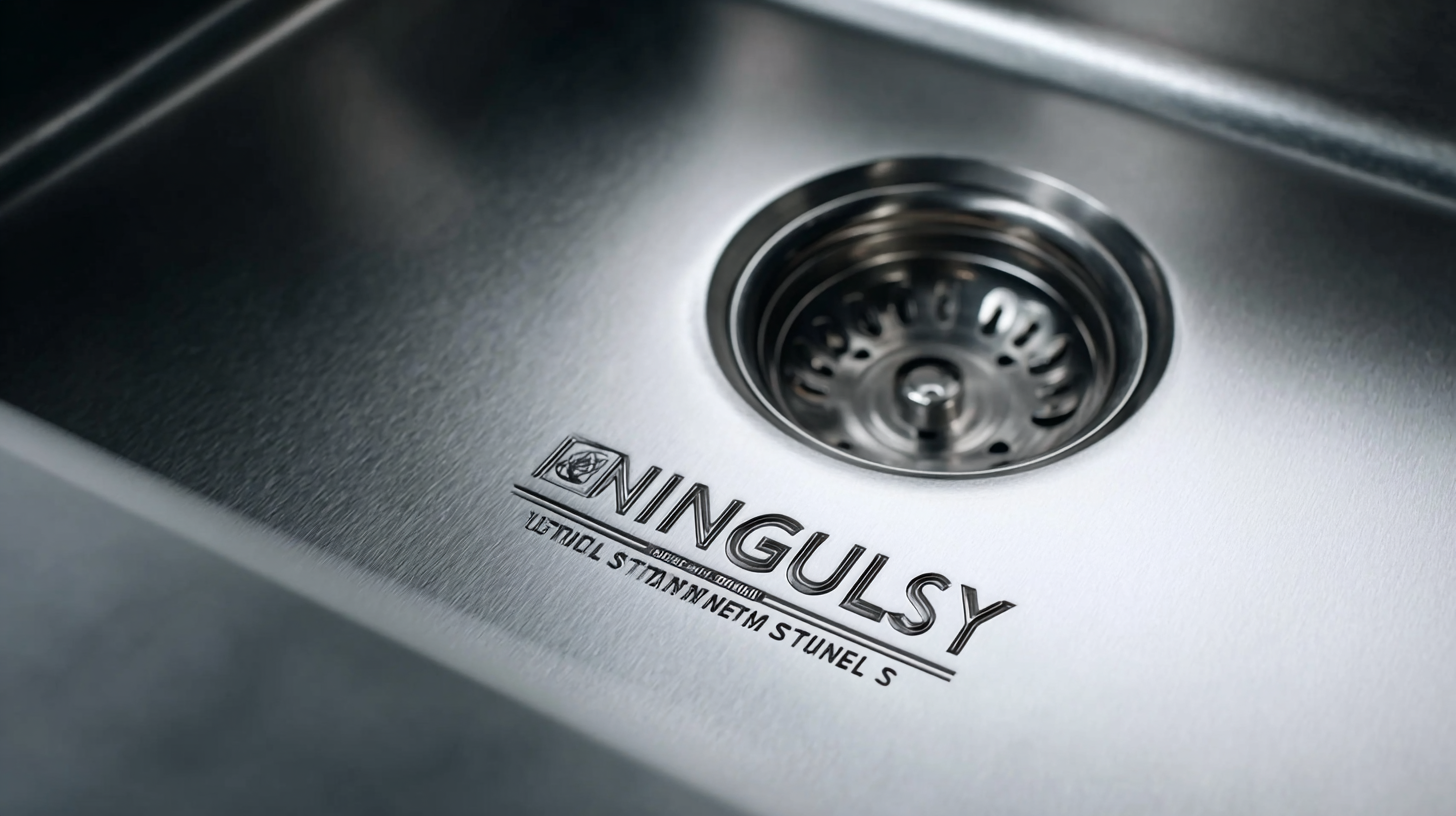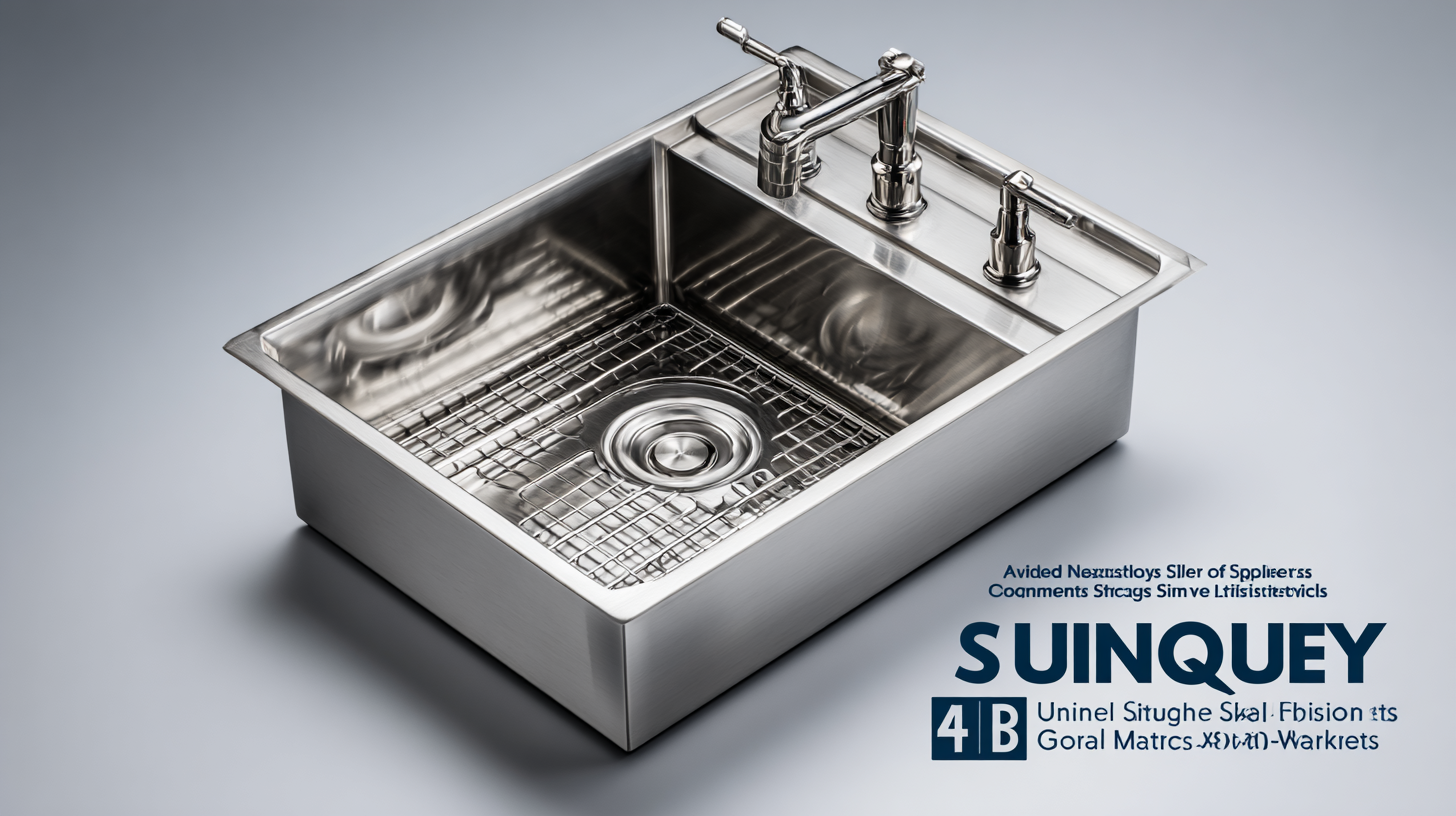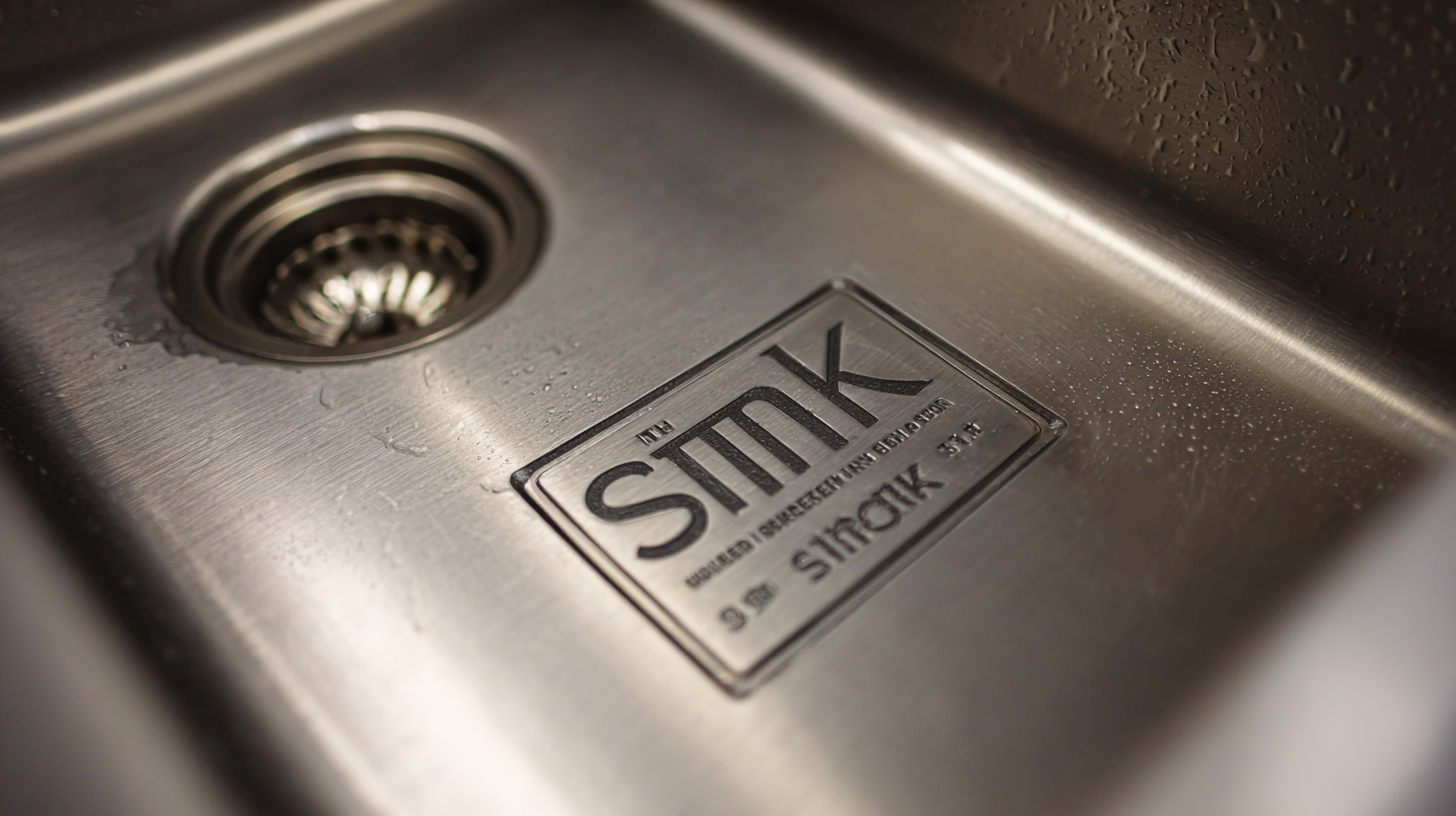In the ever-evolving landscape of global markets, sourcing the optimal Uniquely Designed Stainless Steel Sink presents a myriad of challenges and opportunities for businesses. As we move towards 2025, the technological advancements and design innovations in the kitchenware industry are set to redefine consumer expectations and manufacturing processes. Companies must navigate a complex web of supply chain dynamics, consumer preferences, and sustainability considerations while ensuring their products stand out in a crowded marketplace.

This blog will explore the emerging trends in technology that are shaping the future of stainless steel sinks, offering insights on how to effectively source these uniquely designed products to meet the demands of diverse markets. Join us as we dive into strategies and solutions that align with the evolving landscape, paving the way for successful sourcing and design in a competitive global arena.
When sourcing uniquely designed stainless steel sinks for global consumers, it’s essential to identify the key features that appeal to diverse markets. One primary consideration is the sink's aesthetic appeal. Unique designs, such as handcrafted patterns or innovative shapes, can attract consumers looking for more than just a functional product. Different cultures have varying design preferences, making it crucial to research regional trends and incorporate them into product lines.
Another vital feature is durability and functionality. Consumers expect stainless steel sinks to withstand the rigors of daily use while maintaining their visual integrity. High-quality, corrosion-resistant materials and finishes not only enhance the product's longevity but also align with environmentally conscious practices. Furthermore, understanding the dimensions and installation preferences of global markets can ensure that sinks fit seamlessly into various kitchen environments, thereby enhancing their practicality and appeal. These considerations will guide manufacturers and suppliers in creating sinks that resonate with global consumers.
| Feature | Description | Importance for Global Consumers | Market Trends |
|---|---|---|---|
| Durability | Resistant to corrosion, scratches, and heat. | High demand for long-lasting products in households. | Increasing preference for quality materials. |
| Design Flexibility | Variety of styles that can fit diverse kitchen aesthetics. | Consumers value customization and personalized choices. | Growing trend for unique and bespoke products. |
| Eco-Friendliness | Manufactured using sustainable practices. | Rising consumer awareness about environmental issues. | Shift towards green products in various markets. |
| Functionality | Incorporates additional features such as soundproofing and easy cleaning. | Consumers prefer sinks that enhance usability and convenience. | Innovation in kitchen design focusing on practicality. |
| Affordability | Competitive pricing without compromising quality. | Consumers are looking for value for money. | Economy-driven choices affecting purchasing decisions. |
When sourcing uniquely designed stainless steel sinks for global markets, it's crucial to understand cultural preferences that influence design choices. Different regions have distinct aesthetics and functional needs that dictate how sinks are perceived and used. For instance, in some European markets, minimalistic and sleek designs may be favored, while in Asian markets, multifunctional and space-saving features often take precedence. Recognizing these preferences can help companies tailor their products to meet local demands effectively.
Tip: Conduct comprehensive market research to identify the specific trends and requirements in prospective regions. Engaging with local designers and architects can provide invaluable insights into what resonates with consumers in different cultures.
Additionally, considering local materials and craftsmanship styles can enhance the appeal of stainless steel sinks. Some markets may appreciate the incorporation of traditional design elements or even hybrid materials that reflect their heritage. This approach not only fosters a connection with the consumers but can also differentiate your product in a crowded marketplace.
Tip: Collaborate with local artisans to create designs that blend modern functionality with traditional aesthetics, ultimately increasing the marketability of your sinks across diverse regions.
When sourcing stainless steel sinks for global markets, assessing quality and durability is paramount. According to a recent report by MarketsandMarkets, the stainless steel sink market is projected to reach USD 2.4 billion by 2026, driven by increasing urbanization and consumer preference for durable kitchen fixtures. However, not all stainless steel sinks are created equal; selecting the right one requires an understanding of the material grades and finishes. Look for sinks made from 18/10 stainless steel, which contains 18% chromium and 10% nickel, offering exceptional resistance to rust and corrosion compared to lower-grade alternatives.
Additionally, robust quality assessments include evaluating the sink's gauge. A lower gauge number indicates a thicker steel, which translates to increased durability and noise reduction—a significant consideration for consumer satisfaction. According to the National Association of Home Builders, kitchens equipped with high-quality stainless steel sinks can enhance home value significantly. Buyers are advised to conduct thorough comparisons, examining product reviews and certifications, such as those from the American Society for Testing and Materials (ASTM), to ensure that the sinks meet international standards of quality and performance before making a bulk purchase.

In the competitive landscape of global sourcing, establishing robust supplier relationships is crucial for companies seeking uniquely designed stainless steel sinks. According to a 2022 report by Mordor Intelligence, the global stainless steel sink market is projected to grow at a CAGR of 4.5%, reaching $1.8 billion by 2027. This growth presents an opportunity for businesses to leverage strategic supplier partnerships, ensuring access to innovative designs and high-quality materials. Effective communication and clear expectations form the bedrock of these relationships, enabling companies to navigate challenges such as varying regulatory standards and cultural differences in global markets.
Best practices in supplier relationship management involve regular evaluations and fostering transparency. A study by McKinsey & Company found that companies that routinely communicate and collaborate with their suppliers can reduce costs by up to 30%. This is particularly relevant in the stainless steel sink market, where the demand for bespoke designs influences sourcing strategies. By integrating technology such as supplier performance monitoring systems, businesses can enhance their decision-making process and build more resilient supply chains, ensuring that they remain competitive while fulfilling global market demands.
In today's competitive global market, sourcing uniquely designed stainless steel sinks can be challenging. However, leveraging technology can streamline this process significantly. By utilizing advanced software and online platforms, businesses can easily connect with manufacturers who specialize in custom sink designs. These tech tools enable businesses to compare designs, pricing, and quality from various suppliers across the globe, ensuring they find the right fit for their needs.

Tips for Streamlining the Sourcing Process:
By embracing these technological advancements, businesses can overcome sourcing challenges and stay ahead in the ever-evolving landscape of uniquely designed kitchen fixtures.
